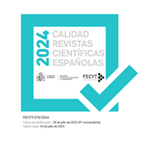Glocalized rhetoric practices on medical writing
Resumen
Facing a rapidly changing global environment, educators around the world have argued for a need to incorporate a global perspective in local educational policy making. The present study undertakes such a glocal project examining medical writing of international physicians and Taiwanese interns. In this study, the Corpus of English for Medical Purpose (CEMP) has been created. There are 50 experts’ (49,655 words) and 50 students’ (9,829 words) medical writing samples respectively. The moves and steps used between the two groups were analyzed from three linguistic features, voice form, tense, and grammatical subject. Then, a parallel corpus was consulted in an attempt to explain the rhetoric features unique to Taiwanese writers. Based on the findings, a framework is proposed to provide guidance for the instruction and learning of medical writing. The findings contribute to medical education by highlighting how the dual forces of the target and native languages shape students’ medical writing.Descargas
Descarga artículo
Licencia
La revista Círculo de Lingüística Aplicada a la Comunicación, para fomentar el intercambio global del conocimiento, facilita el acceso sin restricciones a sus contenidos desde el momento de su publicación en la presente edición electrónica, y por eso es una revista de acceso abierto. Los originales publicados en esta revista son propiedad de la Universidad Complutense de Madrid y es obligatorio citar su procedencia en cualquier reproducción total o parcial. Todos los contenidos se distribuyen bajo una licencia de uso y distribución Creative Commons Reconocimiento 4.0 (CC BY 4.0). Esta circunstancia ha de hacerse constar expresamente de esta forma cuando sea necesario. Puede consultar la versión informativa y el texto legal de la licencia.











